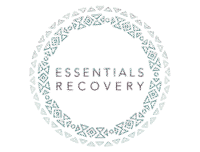Recovery from addiction or mental health challenges is not just about abstinence or symptom management. It’s a deeply personal and ongoing journey of healing, rebuilding, and rediscovering who you are. One of the most essential, yet often overlooked, parts of that journey is self-care.
Self-care is more than taking bubble baths or treating yourself occasionally. It’s about creating a life where your needs are consistently met—physically, emotionally, mentally, and spiritually. It’s about learning to listen to yourself, respect your boundaries, and actively protect your well-being. In recovery, prioritizing self-care is not a luxury. It’s a necessity.
What Self-Care Really Means in Recovery
For those in recovery, self-care can feel unfamiliar or even uncomfortable at first. Many people struggling with addiction or mental health issues have spent years ignoring their needs, numbing their pain, or putting others first. The idea of prioritizing yourself might feel selfish or undeserved. But recovery is the time to challenge those beliefs.
Self-care is not about being self-centered. It’s about making sure you’re strong and stable enough to show up for your life. When you take care of yourself, you improve your ability to stay sober, manage emotions, and navigate challenges without resorting to harmful behaviors. It’s a form of self-respect, and it lays the foundation for long-term healing.
Listening to Your Body and Mind
A big part of self-care is learning to check in with yourself regularly. That means paying attention to what your body and mind are telling you. Are you tired? Stressed? Hungry? Overwhelmed? Ignoring these signals can lead to burnout, relapse, or emotional dysregulation.
Building awareness of your internal experience allows you to respond rather than react. It helps you make healthier choices, whether that means taking a break, reaching out for support, or adjusting your schedule. Recovery is about progress, not perfection—and sometimes the most powerful thing you can do is pause and ask yourself what you really need in the moment.
Creating Routines That Support Wellness
Structure and routine play a key role in both recovery and self-care. Creating daily habits that support your health and emotional stability provides a sense of safety and predictability. This can include getting enough sleep, eating regular meals, staying hydrated, taking medications as prescribed, and practicing basic hygiene.
Routines also provide opportunities to build in small, meaningful acts of self-care. Setting aside time for a morning walk, journaling before bed, or preparing a healthy meal can all become anchors in your day. These rituals remind you that your recovery is worth investing in and that you deserve to be cared for.
Consistency is more important than intensity. Start with small changes and build from there.
Nurturing Emotional Health
Taking care of your emotional well-being is just as important as caring for your physical body. This means allowing yourself to feel your feelings rather than pushing them away. It also means finding safe ways to express and process those emotions, whether through therapy, journaling, art, or talking with trusted friends.
Emotional self-care also involves setting healthy boundaries, saying no when needed, and surrounding yourself with people who respect your recovery. It’s about protecting your peace and avoiding situations that drain or destabilize you.
Learning to be gentle with yourself—especially on hard days—is one of the greatest gifts of recovery. Self-compassion allows space for mistakes, setbacks, and vulnerability, all of which are natural parts of healing.
Cultivating Joy and Meaning
Recovery isn’t just about avoiding pain—it’s also about creating joy. Self-care includes doing things that make you feel alive, inspired, and connected. That might be spending time in nature, listening to music, volunteering, exploring creative hobbies, or learning something new.
Cultivating joy helps counterbalance the effort and discomfort that can come with healing. It reminds you that there is beauty in life beyond survival. When you prioritize activities that bring you meaning and pleasure, you reinforce your commitment to stay well and continue growing.
Joy is not frivolous. It’s fuel for the journey.
Managing Stress with Healthy Tools
Stress is inevitable, especially in recovery, where you’re learning new ways to cope with life’s ups and downs. A strong self-care practice includes healthy strategies for managing stress. This might involve mindfulness, breathing exercises, physical activity, or grounding techniques that help calm your nervous system.
The key is to have a toolbox of coping skills you can turn to when things feel hard. Practice using them regularly so they become second nature. Over time, these tools can replace old habits that were once used to escape or numb discomfort.
Managing stress is not about avoiding problems—it’s about learning how to stay centered and resilient in the face of them.
Making Time for Connection
Human connection is an essential part of self-care. Isolation can be a trigger for relapse, depression, or anxiety, so making time to connect with others is crucial. This could mean attending support groups, spending time with sober friends, or simply reaching out to someone you trust when you’re struggling.
Relationships can be both nurturing and challenging. Part of self-care is learning to communicate honestly, ask for what you need, and walk away from relationships that are harmful to your recovery. Surround yourself with people who uplift you and support your growth.
Connection doesn’t always require deep conversation. Sometimes sitting with someone in silence, sharing a meal, or enjoying a shared activity is enough to remind you that you are not alone.
Overcoming Guilt Around Self-Care
It’s common for people in recovery to feel guilty about taking time for themselves. There may be lingering shame from the past, or a belief that you have to constantly prove your worth through service to others. But recovery is not about punishment—it’s about healing. And healing requires care.
Remind yourself that self-care is not earned. It’s a basic human need. You don’t have to be perfect or meet anyone’s expectations to deserve rest, support, and kindness. In fact, when you take care of yourself, you become better equipped to care for others in a healthy, balanced way.
Letting go of guilt around self-care is an act of self-liberation. It allows you to show up for your life with presence, purpose, and integrity.
Making Self-Care a Daily Practice
Self-care isn’t something you do once in a while when things get rough. It’s a lifestyle. It’s the daily choices you make to honor your recovery, your well-being, and your future. These choices might look different from day to day, depending on what you need. But the commitment remains the same.
Building a self-care practice takes time. There will be days when it’s easy and days when it feels impossible. That’s okay. The important thing is to keep coming back to yourself. Keep checking in, keep showing up, and keep choosing care—especially when it feels difficult.
Each small act of self-care is a reminder that you matter. That your life is worth protecting. That healing is possible.
Final Thoughts
Prioritizing self-care in recovery is not a sign of weakness. It’s a sign of wisdom. It means you understand that true healing doesn’t happen by force or willpower alone—it happens when you learn to treat yourself with the same compassion, patience, and love that you would offer a dear friend.
Self-care isn’t about escaping life. It’s about creating a life you don’t have to escape from. It’s about meeting yourself where you are, one moment at a time, and offering what you need to stay grounded and whole.
As you continue on your recovery journey, let self-care be your compass. Let it guide you back to yourself, again and again. Call us today at 855-509-1697.



